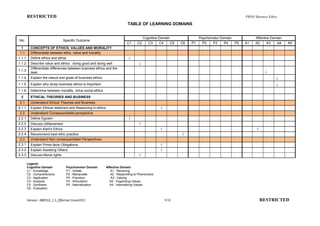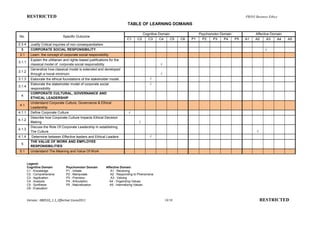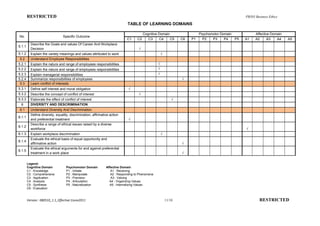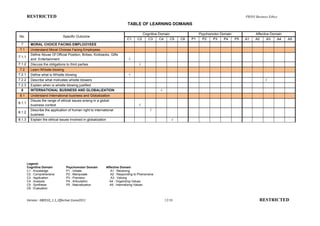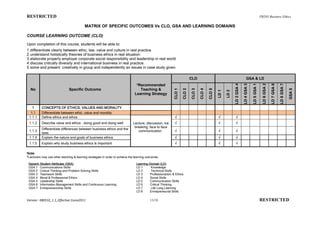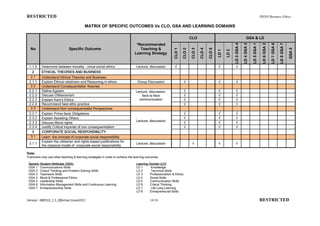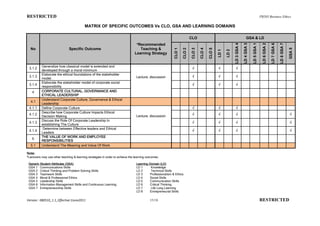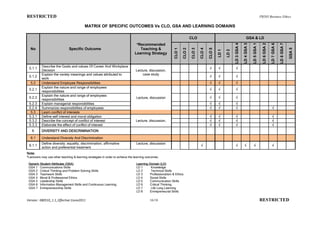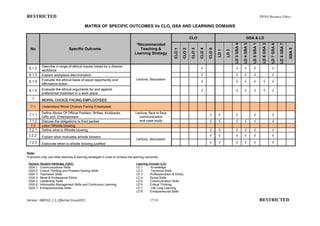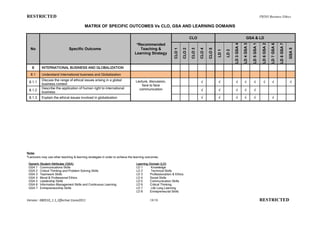1. The document outlines a business ethics course covering concepts like ethics, values, morality and theories as applied to business.
2. Key topics include corporate social responsibility, culture and leadership, employee responsibilities, diversity, and globalization.
3. Assessment consists of continuous assessments like quizzes, tests, assignments, and a group project, as well as a final exam.
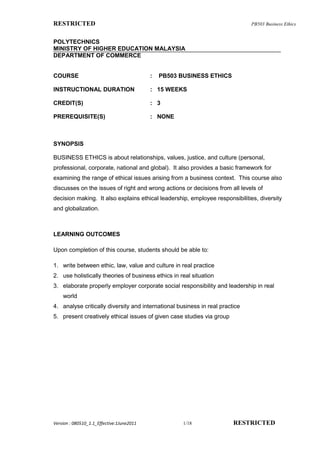
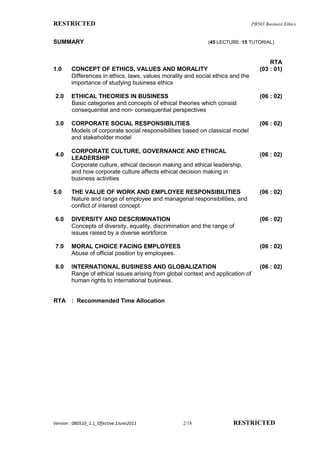
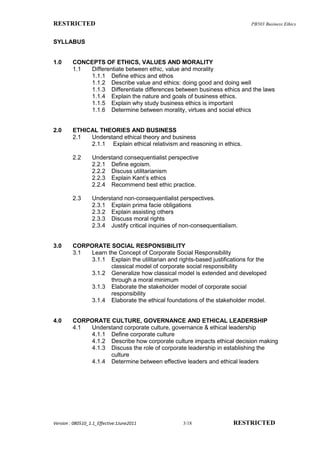
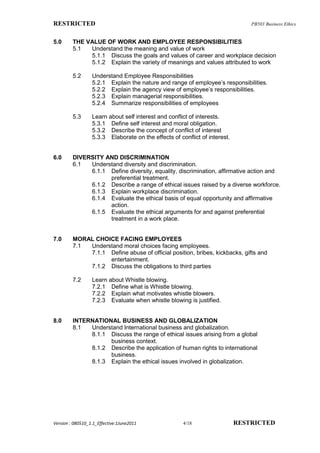
![RESTRICTED PB503 Business Ethics
ASSESSMENT
TYPES OF ASSESSMENT
The course assessment is carried out in two sections:
i. Continuous Assessment - (CA)
ii. Final Examination - (FE)
The percentage ratio of FE to CA should follow the guidelines stated in the
Arahan-Arahan Peperiksaan dan Kaedah Penilaian which is approved by
the Lembaga Peperiksaan dan Penganugerahan Sijil/Diploma Politeknik.
CONTINUOUS ASSESSMENT (CA):
[ The total score of the CA components will be converted to determined the CA
percentage ]
Continuous assessment is carried out throughout the semester and
comprises the following:
a. Quiz (minimum 3) 20%
b. Test (minimum 1) 20%
c. Other Assessment Task
i. End-of Chapter (minimum 2) 15%
ii. Case Study (minimum 2) 20%
iii. Project (minimum 1) 10%
iv. Presentation (minimum 1) 10%
v. Peer Assessment 5%
FINAL EXAMINATION (FE):
Final examination is carried out at the end of the semester.
Note: 1. Refer to Assessment Specification Table (AST) for the details
2. The percentage of Continuous Assessment may vary depending in courses
Version : 080510_1.1_Effective:1June2011 5/18 RESTRICTED](https://image.slidesharecdn.com/pb503businessethics-111226192418-phpapp02/85/Pb503-business-ethics-5-320.jpg)
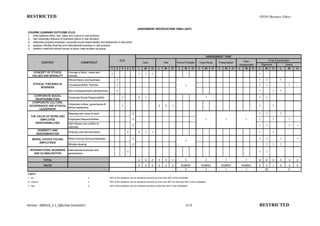
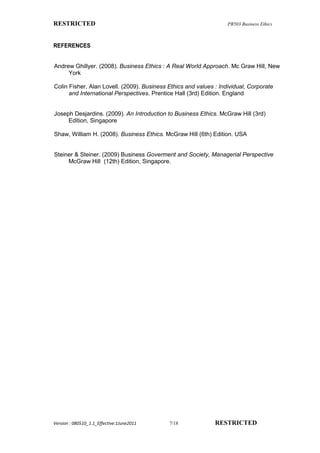
![RESTRICTED PB503 Business Ethics
DISTRIBUTION OF STUDENT LEARNING TIME
COURSE : BUSINESS ETHICS
CREDIT : 3
No. Activities CODE SLT
1 Lecture [ 3 hour(s) x 15 week(s) ] L 45
- Lecture hours [√]
- Assessment Task
Lecture Test/Quiz [ √ ]
2 Self Learning: Lecture [ 3 hour(s) x 15 week(s) ] I 45
- Preparation before lecture class viz. review/download lesson notes. [√]
- Preparation after lecture class viz. additional references, discussion [√]
-
Preparation for lecture test. [√]
3 Practical [ 0 hour(s) x 15 week(s) ] P 0
- Lab work [ ] Studio work [ ] [ ]
- Practical test [ ] Workshop [ ] [ ]
- Field work [ ] Simulation [ ] [ ]
- Survey/research [ ] Outdoors [ ] [ ]
4 Self Learning: Practical [ ] I 0
- Preparation before practical class/field work/survey viz. review notes, [ ]
- Preparation after practical class/field work/survey viz. additional
references, discussion session and report writing. [ ]
- Preparation before studio work presentation/critique. [ ]
- Preparation for practical test. [ ]
5 Tutorial [ 1 hour(s) x 15 week(s) ] T 15
6 Other Assessment Task O 15
Capstone Project [ ] Portfolio [ ] Essay Question [ ]
(Final Project) Peer Assessment [ √ ] Observation [ ]
Presentation [√ ] Self Assessment [ ] Discussion [ ]
Reflective Journal [ ] End-of-Chapter [ √ ] Project [√ ]
Case Study [√ ]
Industrial Visit [ ]
Total 120
L Lecture 45
P Practical 0
I Self Learning 45
T Tutorial 15
O Other Assessment Task 15
SLT (Student Learning Time) 120
Credit = SLT/40 3.00
Version : 080510_1.1_Effective:1June2011 8/18 RESTRICTED](https://image.slidesharecdn.com/pb503businessethics-111226192418-phpapp02/85/Pb503-business-ethics-8-320.jpg)
